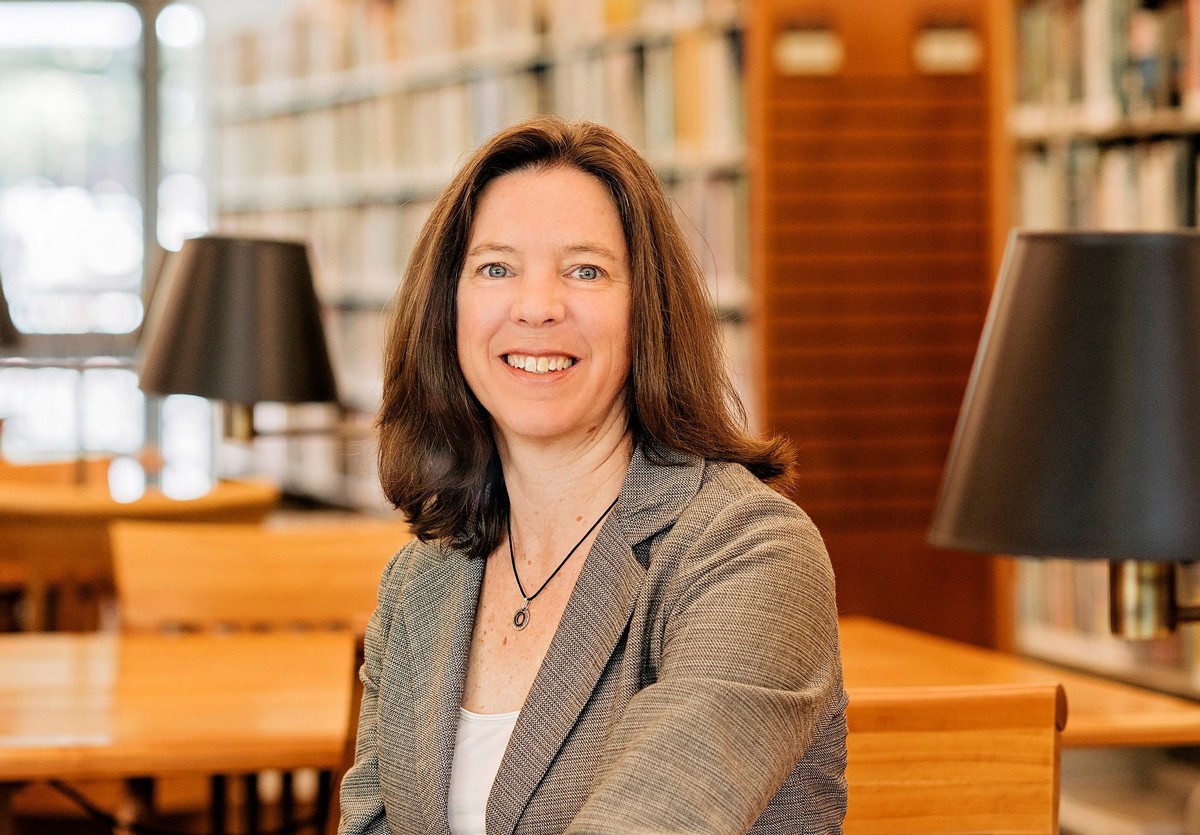For many educators, the shift to online instruction occasioned by the COVID pandemic has meant completely rethinking how to teach. But to Jane K. Dickinson, faculty member and Director of Teachers College's Master of Science Program in Diabetes Education and Management, the virtual medium is second nature.
Dickinson, a registered nurse, certified diabetes care and education specialist, author and educator — and herself a person living with diabetes — began her digital education journey at TC nearly 10 years ago.

FREE OF JUDGMENT Dickinson wants to “change the way we speak about the disease and promote a positive way of thinking.” (Photo: TC Archives)
In 2011, Dickinson launched the TC diabetes program, the first of its kind nationally and globally. Unlike most other programs at the College, it's completely online and asynchronous. There are no on-campus, in-person or timed components, and students “meet” — on their schedule — in cyberspace for rich discussions. The program is “interprofessional” — that is, students work in a range of health roles, including as nurses, dietitians, exercise professionals, physical therapists, health educators, and physicians — and are hoping to advance their knowledge in diabetes.
Beyond providing busy, working students with maximum flexibility, the program seeks to improve diabetes education and care — in large part by continuously reshaping and improving the language in the field.
One of the goals of this program is to put professionals out into the world who have an academic background in diabetes care and make the world a better place for people with diabetes. The only way to do that is to use positive messaging.
“My passion, which I talk about frequently in my courses, is the messaging and language that surrounds diabetes,” says Dickinson, who was named 2019 Diabetes Educator of the Year for these efforts by the American Association of Diabetes Educators (AADE). “Very often the messages are negative and judgmental. I want to change the way we speak about the disease and promote a positive way of thinking while doing so. One of the goals of this program is to put professionals out into the world who have an academic background in diabetes care and make the world a better place for people with diabetes. The only way to do that is to use positive messaging.”
Dickinson’s comprehensive, discussion-centered teaching format — something of an anomaly for a remote setting — is a key feature of the program.
“These students are knowledgeable professionals, so we talk about their personal and professional experiences, as well as about assigned readings and other supplemental resources that we all share in the virtual classroom,” she says. “The in-class discussions are designed to ensure that every student is understanding and gaining insights from the reading, participating in the course, being ‘heard,’ and has an opportunity to learn how to interpret and discuss the research in their own words.”
Believing that “communication is key,” Dickinson responds to each student's posts and posts her own weekly video wrap-up in which she briefly summarizes class discussion, flags valuable content that may have been overlooked, clarifies any subject matter that needs additional context, and shares helpful resources. “The key to successfully teaching an online course is engagement. When the faculty member is engaged, the students are eager to learn and participate.”
Another result of her efforts is a sense of community that extends beyond the life of the program. “Students tell me that they get to know each other better than would have ever done in the classroom. They're setting up Zoom meetings and texting each other frequently.” Some students have even thanked her for the life-long friendships and colleagues they’ve created through the program — a benefit that Dickinson herself has realized as well.
The key to successfully teaching an online course is engagement. When the faculty member is engaged, the students are eager to learn and participate.
“I maintain close contact with both students and graduates,” she says. “Sometimes, after they graduate, we work together on the same committees in national organizations. These are my peers and my colleagues — and my friends.”
After a decade of running the program, Dickinson is still making discoveries that keep things fresh.
“Every student's expectation coming into the program is different, and there is no singular way of online teaching,” she says. “The younger generations coming up have different needs. And there are so many topics to cover in diabetes. So I always remind myself that I need to try new things and get creative. They are constantly learning, and so am I.”
Read previous stories of how TC faculty are innovating in their online teaching. Read a story about the College's transition online during the COVID pandemic.

